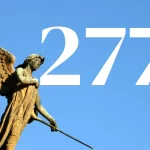Ramadan in UAE is a time of joy and celebration. Families come together for nightly “iftars” and eat a meal after sunset after breaking their fast.
Ramadan in UAE is the most important month in the Islamic calendar, dating from March 23 to April 21, 2023. This is the month when the Quran was revealed to Prophet Muhammad. During Ramadan, Muslims fast from sunrise to sunset. This is a time of spiritual reflection and increased religious devotion.
Emiratis take great pride in their culture and traditions, and Ramadan is an opportunity to showcase this to the world. As a result, Ramadan in UAE is a critical time for religious and cultural reasons.
This Dbd guide will look more into detail, like the Ramadan date in UAE, activities to do, and some healthy tips to make your holy month even more blissful.
Ramadan praying time in UAE
Muslims in the UAE will start their Ramadan fast at different times depending on their city. In Dubai, the fast will start before the prayer of Fajr and break at the Maghrib prayer.
For those spending Ramadan in UAE, it is essential to know the prayer times to plan your day accordingly. The table below lists the times for Iftar (the meal to break the fast), Suhoor (the meal before dawn), and other prayer timings throughout the day.
The following table shows the timings for the Ramadan prayer in Dubai. You can also use it if you are in Sharjah or Ajman. For Abu Dhabi prayer time, just add five minutes. Ras Al Khaimah, Umm Al Quwain, and Fujairah residents can deduct three minutes for the right prayer time.
With this information, you can ensure you don’t miss a single prayer during Ramadan.
2025 Ramadan praying time in UAE
| Ramadan | Weekday | Greg | Imsak | Fajr | Sunrise | Dhuhr | Asr | Maghrib | Isha |
|---|---|---|---|---|---|---|---|---|---|
| 1 | Saturday | April 02, 2022 | 4:41 AM | 4:51 AM | 6:06 AM | 12:25 PM | 3:52 PM | 6:39 PM | 7:54 PM |
| 2 | Sunday | April 03, 2022 | 4:40 AM | 4:50 AM | 6:05 AM | 12:25 PM | 3:52 PM | 6:39 PM | 7:54 PM |
| 3 | Monday | April 04, 2022 | 4:39 AM | 4:49 AM | 6:04 AM | 12:25 PM | 3:52 PM | 6:40 PM | 7:55 PM |
| 4 | Tuesday | April 05, 2022 | 4:38 AM | 4:48 AM | 6:03 AM | 12:24 PM | 3:51 PM | 6:40 PM | 7:55 PM |
| 5 | Wednesday | April 06, 2022 | 4:37 AM | 4:47 AM | 6:02 AM | 12:24 PM | 3:51 PM | 6:41 PM | 7:56 PM |
| 6 | Thursday | April 07, 2022 | 4:36 AM | 4:46 AM | 6:01 AM | 12:24 PM | 3:51 PM | 6:41 PM | 7:57 PM |
| 7 | Friday | April 08, 2022 | 4:35 AM | 4:45 AM | 6:00 AM | 12:24 PM | 3:51 PM | 6:42 PM | 7:57 PM |
| 8 | Saturday | April 09, 2022 | 4:33 AM | 4:43 AM | 5:59 AM | 12:23 PM | 3:51 PM | 6:42 PM | 7:58 PM |
| 9 | Sunday | April 10, 2022 | 4:32 AM | 4:42 AM | 5:58 AM | 12:23 PM | 3:50 PM | 6:43 PM | 7:58 PM |
| 10 | Monday | April 11, 2022 | 4:31 AM | 4:41 AM | 5:57 AM | 12:23 PM | 3:50 PM | 6:43 PM | 7:59 PM |
| 11 | Tuesday | April 12, 2022 | 4:30 AM | 4:40 AM | 5:56 AM | 12:22 PM | 3:50 PM | 6:43 PM | 8:00 PM |
| 12 | Wednesday | April 13, 2022 | 4:29 AM | 4:39 AM | 5:55 AM | 12:22 PM | 3:50 PM | 6:44 PM | 8:00 PM |
| 13 | Thursday | April 14, 2022 | 4:28 AM | 4:38 AM | 5:54 AM | 12:22 PM | 3:49 PM | 6:44 PM | 8:01 PM |
| 14 | Friday | April 15, 2022 | 4:27 AM | 4:37 AM | 5:53 AM | 12:22 PM | 3:49 PM | 6:45 PM | 8:01 PM |
| 15 | Saturday | April 16, 2022 | 4:26 AM | 4:36 AM | 5:52 AM | 12:21 PM | 3:49 PM | 6:45 PM | 8:02 PM |
| 16 | Sunday | April 17, 2022 | 4:25 AM | 4:35 AM | 5:51 AM | 12:21 PM | 3:49 PM | 6:46 PM | 8:03 PM |
| 17 | Monday | April 18, 2022 | 4:23 AM | 4:33 AM | 5:50 AM | 12:21 PM | 3:48 PM | 6:46 PM | 8:03 PM |
| 18 | Tuesday | April 19, 2022 | 4:22 AM | 4:32 AM | 5:49 AM | 12:21 PM | 3:48 PM | 6:47 PM | 8:04 PM |
| 19 | Wednesday | April 20, 2022 | 4:21 AM | 4:31 AM | 5:49 AM | 12:21 PM | 3:48 PM | 6:47 PM | 8:05 PM |
| 20 | Thursday | April 21, 2022 | 4:20 AM | 4:30 AM | 5:48 AM | 12:20 PM | 3:48 PM | 6:48 PM | 8:05 PM |
| 21 | Friday | April 22, 2022 | 4:19 AM | 4:29 AM | 5:47 AM | 12:20 PM | 3:47 PM | 6:48 PM | 8:06 PM |
| 22 | Saturday | April 23 ,2022 | 4:18 AM | 4:28 AM | 5:46 AM | 12:20 PM | 3:47 PM | 6:49 PM | 8:07 PM |
| 23 | Sunday | April 24, 2022 | 4:17 AM | 4:27 AM | 5:45 AM | 12:20 PM | 3:47 PM | 6:49 PM | 8:07 PM |
| 24 | Monday | April 25, 2022 | 4:16 AM | 4:26 AM | 5:44 AM | 12:20 PM | 3:47 PM | 6:50 PM | 8:08 PM |
| 25 | Tuesday | April 26, 2022 | 4:15 AM | 4:25 AM | 5:43 AM | 12:19 PM | 3:46 PM | 6:50 PM | 8:09 PM |
| 26 | Wednesday | April 27, 2022 | 4:14 AM | 4:24 AM | 5:43 AM | 12:19 PM | 3:46 PM | 6:51 PM | 8:09 PM |
| 27 | Thursday | April 28, 2022 | 4:13 AM | 4:23 AM | 5:42 AM | 12:19 PM | 3:46 PM | 6:51 PM | 8:10 PM |
| 28 | Friday | April 29, 2022 | 4:12 AM | 4:22 AM | 5:41 AM | 12:19 PM | 3:46 PM | 6:52 PM | 8:11 PM |
| 29 | Saturday | April 30 ,2022 | 4:11 AM | 4:21 AM | 5:40 AM | 12:19 PM | 3:46 PM | 6:52 PM | 8:11 PM |
| 30 | Sunday | May 01, 2022 | 4:10 AM | 4:20 AM | 5:40 AM | 12:19 PM | 3:45 PM | 6:53 PM | 8:12 PM |
2023 Ramadan praying time in UAE
| Date | Fajr | Sunrise | Dhuhr | Asr | Sunset | Maghrib | Isha |
|---|---|---|---|---|---|---|---|
| 01 Ramadan, (23 March, 2023) | 00:18 AM | 06:20 AM | 12:26 PM | 15:52 PM | 18:31 PM | 18:31 PM | 19:34 PM |
| 02 Ramadan, (24 March, 2023) | 05:16 AM | 06:19 AM | 12:25 PM | 15:52 PM | 18:32 PM | 18:32 PM | 19:35 PM |
| 03 Ramadan, (25 March, 2023) | 05:15 AM | 06:18 AM | 12:25 PM | 15:52 PM | 18:32 PM | 18:32 PM | 19:35 PM |
| 04 Ramadan, (26 March, 2023) | 05:14 AM | 06:17 AM | 12:25 PM | 15:52 PM | 18:33 PM | 18:33 PM | 19:36 PM |
| 05 Ramadan, (27 March, 2023) | 05:13 AM | 06:16 AM | 12:24 PM | 15:52 PM | 18:33 PM | 18:33 PM | 19:36 PM |
| 06 Ramadan, (28 March, 2023) | 05:12 AM | 06:15 AM | 12:24 PM | 15:51 PM | 18:33 PM | 18:33 PM | 19:37 PM |
| 07 Ramadan, (29 March, 2023) | 05:11 AM | 06:14 AM | 12:24 PM | 15:51 PM | 18:34 PM | 18:34 PM | 19:37 PM |
| 08 Ramadan, (30 March, 2023) | 05:10 AM | 06:13 AM | 12:24 PM | 15:51 PM | 18:34 PM | 18:34 PM | 19:38 PM |
| 09 Ramadan, (31 March, 2023) | 05:09 AM | 06:12 AM | 12:23 PM | 15:51 PM | 18:35 PM | 18:35 PM | 19:38 PM |
| 10 Ramadan, (01 April, 2023) | 05:08 AM | 06:11 AM | 12:23 PM | 15:51 PM | 18:35 PM | 18:35 PM | 19:39 PM |
| 11 Ramadan, (02 April, 2023) | 05:07 AM | 06:10 AM | 12:23 PM | 15:51 PM | 18:36 PM | 18:36 PM | 19:39 PM |
| 12 Ramadan, (03 April, 2023) | 05:05 AM | 06:09 AM | 12:22 PM | 15:51 PM | 18:36 PM | 18:36 PM | 19:40 PM |
| 13 Ramadan, (04 April, 2023) | 05:04 AM | 06:08 AM | 12:22 PM | 15:50 PM | 18:37 PM | 18:37 PM | 19:40 PM |
| 14 Ramadan, (05 April, 2023) | 05:03 AM | 06:07 AM | 12:22 PM | 15:50 PM | 18:37 PM | 18:37 PM | 19:41 PM |
| 15 Ramadan, (06 April, 2023) | 05:02 AM | 06:06 AM | 12:21 PM | 15:50 PM | 18:37 PM | 18:37 PM | 19:41 PM |
| 16 Ramadan, (07 April, 2023) | 05:01 AM | 06:05 AM | 12:21 PM | 15:50 PM | 18:38 PM | 18:38 PM | 19:42 PM |
| 17 Ramadan, (08 April, 2023) | 05:00 AM | 06:04 AM | 12:21 PM | 15:50 PM | 18:38 PM | 18:38 PM | 19:42 PM |
| 18 Ramadan, (09 April, 2023) | 04:59 AM | 06:03 AM | 12:21 PM | 15:49 PM | 18:39 PM | 18:39 PM | 19:43 PM |
| 19 Ramadan, (10 April, 2023) | 04:58 AM | 06:02 AM | 12:20 PM | 15:49 PM | 18:39 PM | 18:39 PM | 19:43 PM |
| 20 Ramadan, (11 April, 2023) | 04:57 AM | 06:01 AM | 12:20 PM | 15:49 PM | 18:40 PM | 18:40 PM | 19:44 PM |
| 21 Ramadan, (12 April, 2023) | 04:56 AM | 06:00 AM | 12:20 PM | 15:49 PM | 18:40 PM | 18:40 PM | 19:45 PM |
| 22 Ramadan, (13 April, 2023) | 04:54 AM | 05:59 AM | 12:20 PM | 15:49 PM | 18:41 PM | 18:41 PM | 19:45 PM |
| 23 Ramadan, (14 April, 2023) | 04:53 AM | 05:58 AM | 12:19 PM | 15:48 PM | 18:41 PM | 18:41 PM | 19:46 PM |
| 24 Ramadan, (15 April, 2023) | 04:52 AM | 05:57 AM | 12:19 PM | 15:48 PM | 18:41 PM | 18:41 PM | 19:46 PM |
| 25 Ramadan, (16 April, 2023) | 04:51 AM | 05:56 AM | 12:19 PM | 15:48 PM | 18:42 PM | 18:42 PM | 19:47 PM |
| 26 Ramadan, (17 April, 2023) | 04:50 AM | 05:55 AM | 12:19 PM | 15:48 PM | 18:42 PM | 18:42 PM | 19:47 PM |
| 27 Ramadan, (18 April, 2023) | 04:49 AM | 05:54 AM | 12:18 PM | 15:47 PM | 18:43 PM | 18:43 PM | 19:48 PM |
| 28 Ramadan, (19 April, 2023) | 04:48 AM | 05:53 AM | 12:18 PM | 15:47 PM | 18:43 PM | 18:43 PM | 19:49 PM |
| 29 Ramadan, (20 April, 2023) | 04:47 AM | 05:52 AM | 12:18 PM | 15:47 PM | 18:44 PM | 18:44 PM | 19:49 PM |
| 30 Ramadan, (21 April, 2023) | 04:46 AM | 05:52 AM | 12:18 PM | 15:47 PM | 18:44 PM | 18:44 PM | 19:50 PM |
Origin and history of Ramadan
Ramadan is the ninth month of the 12-month lunar Islamic calendar, and it doesn’t start on the same day every year. Sightings of the moon determine the date.
According to Muslim belief, God’s angel Jibril (Gabriel) revealed the Quran to Prophet Muhammad in the year AD 610. So, Ramadan is celebrated as a month during which Muhammad received the initial revelations of what became the Quran. [1]National Geographic, “Origin of Ramadan, https://on.natgeo.com/3BzdN8K”
During Ramadan, Muslims fast from dawn to dusk each day and avoid eating, drinking, and smoking. They also avoid sexual activities, unkind or impure thoughts, impure words, and immoral behavior. The purpose of fasting is to cleanse the body & soul and to focus on God.
Those who are healthy and have gone through puberty are expected to fast from dawn to dusk each day for the month. This can be a difficult challenge, but it is also an opportunity to grow closer to God and develop self-discipline.
The first meal of the day during Ramadan, eaten before dawn, is called “suhoor.” Each night’s fasting ends with a meal known as “iftar.” Iftars are generally extravagant feasts enjoyed with relatives and friends. [2]History, “Ramadan, https://www.history.com/topics/holidays/ramadan”
Ramadan’s fasting time, known as “sawm” is considered one of the five pillars of Islam and it holds great significance. The other four pillars are the declaration of your faith, prayer, alms-giving (charity), and pilgrimage.
The much-anticipated end of Ramadan is marked by the celebration of Eid ul Fitr, the feast of fast-breaking. On Eid ul Fitr, Muslims thank Allah for his blessings and the strength he has given them to observe Ramadan.
How do people celebrate Ramadan in UAE?
Muslims around the world celebrate the month of Ramadan with fasting, prayer, and special gatherings. In the United Arab Emirates (UAE), this month is also a time for citywide festivities.
One of the most popular events is the Iftar Cannon, which takes place every night during Ramadan. The cannon is fired at sunset to signal the end of the day’s fast, and it is not uncommon for people to gather around to watch the spectacle. [3]UAE Ramadan, “How is Ramadan observed in the UAE, https://u.ae/en/information-and-services/public-holidays-and-religious-affairs/ramadan”
Other popular events include Ramadan tents where families can come together to eat and socialize. They also set up suhoor tents, where people can enjoy a meal before sunrise.
Similarly, during Ramadan in UAE, many of the city’s skyscrapers and landmarks are decorated with lights and lanterns. Fireworks are standard in the evenings, and special events are held in malls and public squares.
Moreover, families and friends gather together to break the fast at sunset, and mosques are filled with worshippers for Tarawih prayers. At the end of Ramadan, Eid ul Fitr is celebrated with feasts, gifts, and more fireworks.
Foods and celebrations during Ramadan
![Ramadan in UAE: [year] & [nyear] Time Table & More inarticle image-ramadan in uae-feast](https://dbdpost.com/wp-content/uploads/2022/11/inarticle-image-ramadan-in-uae-feast.webp)
The holy month of Ramadan is a time of fasting, prayer, and reflection. For Muslims worldwide, it is also a time to come together with family and friends to break the fast and enjoy memorable meals. In the UAE, certain foods are synonymous with Ramadan.
Dates, for example, are traditionally eaten to break the fast. Harees, a wheat and meat dish, is another popular choice. Machboos, an Emirati rice dish, is often served for Iftar, the meal eaten after sunset.
Luqaimat, sweet dumplings drenched in syrup, are a staple of Ramadan in UAE. And Gahwa, a traditional coffee drink made with cardamom, is essential to any Ramadan gathering.
These foods may vary from region to region and family to family. But they all represent an integral aspect of the Ramadan experience.
Foods to avoid during Ramadan
During the holy month of Ramadan in UAE, many Muslims will begin a period of fasting from sunrise to sunset. While this can be a time of spiritual reflection and self-discipline, it is also vital to ensure that you get enough nutrients to maintain your health.
Here are a few foods to avoid during Ramadan to stay healthy and energized:
- Caffeinated beverages: Coffee, tea, and soda can all contribute to dehydration, which can be dangerous during fasting.
- Alcohol: Obviously, alcohol is off-limits during Ramadan. However, avoiding foods containing alcohol, such as certain kinds of sauces and cakes, is also essential.
- Processed food: Highly processed foods are often high in salt and sugar, leading to dehydration and fatigue.
- Spicy food: Spicy dishes can cause indigestion and heartburn, making the body feel worse when you are already fasting.
- Fried food: Fried dishes can be harmful to the stomach. They can also contribute to feelings of lethargy.
- Sweets: Sugar-rich desserts may give you a quick energy boost but will also cause an inevitable crash later.
Avoiding these types of food can ensure a healthy and enjoyable Ramadan!
Healthy Ramadan fasting tips
During the holy month of Ramadan, Muslims abstain from food and drink from dawn to dusk. This can be a challenging time, both physically and emotionally.
However, there are a few simple things that you can do to make your fast more comfortable and enjoyable.
- Do not skip the pre-dawn meal. Make sure to eat a healthy breakfast before the Fast begins. This will help to keep your energy levels up during the day.
- Avoid overeating during Iftar, the break-fast meal. Although it’s tempting to indulge after a long day of fasting, consuming too much food can be hard on your digestive system.
- Stay hydrated by drinking plenty of water, especially in the evening when you are breaking your fast.
- Try to get enough sleep during the night to function well during the day.
- Lastly, avoid fried, salty, and high-sugar foods, which can cause dehydration and dizziness.
Following these tips, you can make the most of Ramadan and stay healthy throughout the month.
Best places to visit during Ramadan in UAE
Ramadan is an important time for Muslims all over the world to enjoy themselves with family and friends. For many non-Muslims, it is a time to travel. If you are thinking of traveling during Ramadan, here are some of the best places to visit:
- Burj Khalifa, Dubai: The tallest building in the world is a must-see when you are in Dubai. During Ramadan, you can enjoy light shows and special discounts on entry tickets.
- Sheikh Zayed Grand Mosque, Abu Dhabi: This mosque is one of the largest in the world and is a stunning architectural achievement. It is beautiful at night when it is lit up.
- Palm Jumeirah, Dubai: This artificial island is home to some of the world’s most luxurious hotels and resorts. If you are looking for a place to relax and pamper yourself, this is the place to go.
- Louvre Abu Dhabi: This museum is home to some of the world’s most famous works of art, including paintings by Leonardo da Vinci, Van Gogh, and Monet. There are also many Islamic artworks on display.
- Yas Waterworld, Abu Dhabi: This waterpark is one of the largest in the world and has something for everyone. From thrilling rides to lazy river floating, there are plenty of activities.
- Ferrari World, Abu Dhabi: This theme park is a must-visit for any car lover. You can go on rides, see cars being made, and even drive a Ferrari yourself!
- Jebel Jais, Ras Al Khaimah: Jebel Jais is the highest mountain in the UAE and offers breathtaking views. You can go hiking or camping here or enjoy the views from one of the many restaurants or cafes at the top.
No matter what your interests are, there’s sure to be an enjoyable and memorable experience waiting for you during Ramadan in UAE.
Ramadan working hours in UAE
On the Ramadan date in UAE, working hours in the UAE are reduced by two hours. This allows employees time to attend evening prayers and perform other religious duties.
In the city center, many restaurants close during the day to observe the hours of fasting. However, some cafes and restaurants are open during the day for people who want to get food delivered or take it away with them.
Shops are open as usual, but malls stay open until late at night. This is so people can do their shopping after they break their fast at sunset. [4]UAE, “Ramadan working hours, https://u.ae/en/information-and-services/public-holidays-and-religious-affairs/ramadan#:~:text=Find%20details%20below.-,Working%20hours,-Working%20hours%20are”
Overall, the reduced working hours during Ramadan allow employees to fulfill their religious obligations while still being able to provide for their families.
Related Stories
- Read about the dates, history, and significance of Eid al-Adha in UAE in our Dbd guide.
- Break your fast with Eid al-Fitr in UAE. Learn when the next Eid is and what activities you can do.
- Hindus can celebrate Diwali in UAE as well. Learn where to go and what to do during Diwali to find maximum enjoyment.
FAQs
How is Ramadan celebrated in UAE?
Muslims in UAE do not eat or drink from dawn to dusk. They focus on their relationship with God and purifying their soul. They have a feast called Iftar. During Ramadan, they often attend special Tarawih prayers at their local mosque.
Is everything closed during Ramadan in Dubai?
No, not everything is closed during Ramadan in Dubai. Businesses and schools operate as usual, although there may be reduced hours. However, many restaurants and cafes are closed during the day, as eating and drinking are not allowed during daylight hours.
Final thoughts
We hope this Dbd guide has helped provide information on what is done during Ramadan in UAE and which are the best places to be. If you are fasting during Ramadan, we wish you a blessed and peaceful month.
For those not fasting, we hope you will enjoy the Ramadan holidays in UAE and learn more about this Islamic tradition. Likewise, you can also participate in some of the activities that are taking place during the month.
We hope you enjoy your time in the UAE during Ramadan.
- 107shares
- Facebook Messenger
About the author
DbdPost Staff is a team of writers and editors working hard to ensure that all information on our site is as accurate, comprehensive, and trustworthy as possible.
Our goal is always to create the most comprehensive resource directly from experts for our readers on any topic.
![Ramadan in UAE: [year] & [nyear] Time Table & More feature image-ramadan in uae-person reading a book](https://dbdpost.com/wp-content/uploads/2022/11/feature-image-ramadan-in-uae-person-reading-a-book-1024x536.webp)



